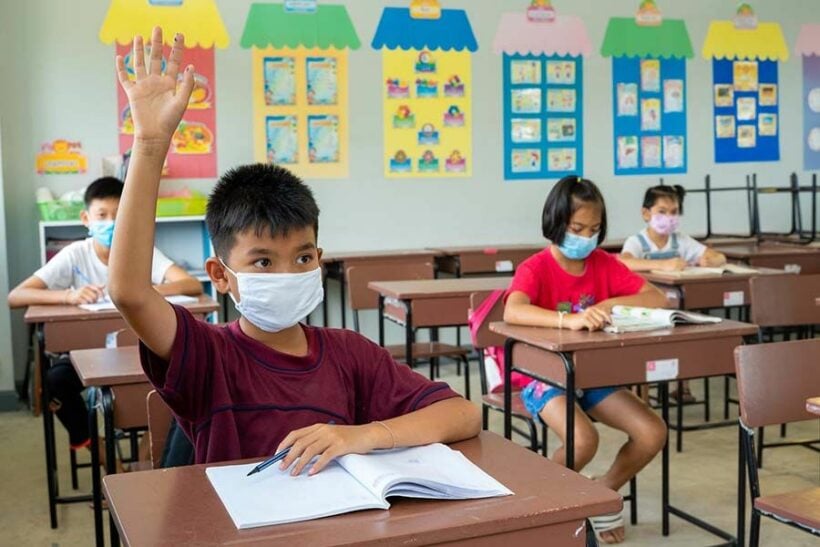Thailand’s schools are reopening but many families remain concerned about Covid

Many of Thailand’s government-funded schools have reopened as of yesterday, along with the acceptance of foreign visitors. However, many students and parents, alike, are reporting mixed feelings surrounding the safety of students in regards to Covid-19. The Education Ministry’s efforts to inoculate 5 million Thai and foreign students between the ages of 12-18, still hasn’t allayed the fears by parents over their kids contracting the virus. Despite 10 million Pfizer Covid-19 shots being allocated for the students, many parents are still advocating for their children to do at home learning. But, with many reports of online learning being considered a failure, it leaves students and parents in a difficult situation. Choosing between their child’s health and getting a sufficient education, seems to be the emerging conundrum.
The Education Ministry does, however, say that students returning to schools would not be compulsory. The Ministry has also partnered the Public Health Ministry to create a handbook for schools to follow to ensure the safety of children and staff. The handbook discusses how to live with the virus and is being touted as the Sandbox Safety Zone in School. Such requirements for reopened schools include steps to take when a Covid infection is found. But Education Minister, Treenuch Thienthong, says the students who choose to go back to school, won’t be tested for Covid-19 before being allowed into class. The reasoning is due to the recent research surrounding the inaccuracy of the rapid antigen Covid-19 tests.
But, as primary level students cannot receive a vaccine due to their age, many parents are still quite worried. Treenuch says that some 10,000 smaller schools have been given the green light to reopen due to their low risks of Covid-19. And, another 19,000 schools will continue with online learning until they have reached the vaccination target.
Talks of students falling behind have remained strong for the past 21 months, when students began online studies due to the pandemic. The Education Ministry also faced harsh criticisms when news broke of a Thai English teachers’ lessons being shared on social media. From incorrect English to outdated teaching methods, the Covid pandemic thrust Thai schools into the unenviable spotlight.
The Ministry has admitted that such virtual learning cannot replace the benefits of learning in school, as attention spans lag, and social interaction with peers contribute to poorer learning results. Such alternative learning platforms like “on-air” distance-learning TV, “on demand” application-based learning, “on-hand” home assignments, and online internet-based learning have all proven to be subpar compared to the physical classroom learning environment. Teachers have even voiced their concerns for the younger children as their ability to pay attention during online learning is quite low. And, those in rural areas, have seen shoddy WiFi that has led to multiple blackouts in the middle of online learning.
But, Treenuch says it is time to stop living in fear and to move forward with plan to live with Covid. Those schools that are reopening have been approved based on a number of prerequisites. Such factors as the Covid-19 situation in the schools’ local communities, vaccination rates, and readiness to handle virus risks all play into whether a school is approved to reopen. For dark red zones, the Ministry says 80 to 85% of teachers should be vaccinated, as well as practises like mask-wearing and social distancing to be in place. A school’s readiness to reopen will be inspected by health authorities and the provincial communicable disease committees.
SOURCE: Bangkok Post
Latest Thailand News
Follow The Thaiger on Google News:


























